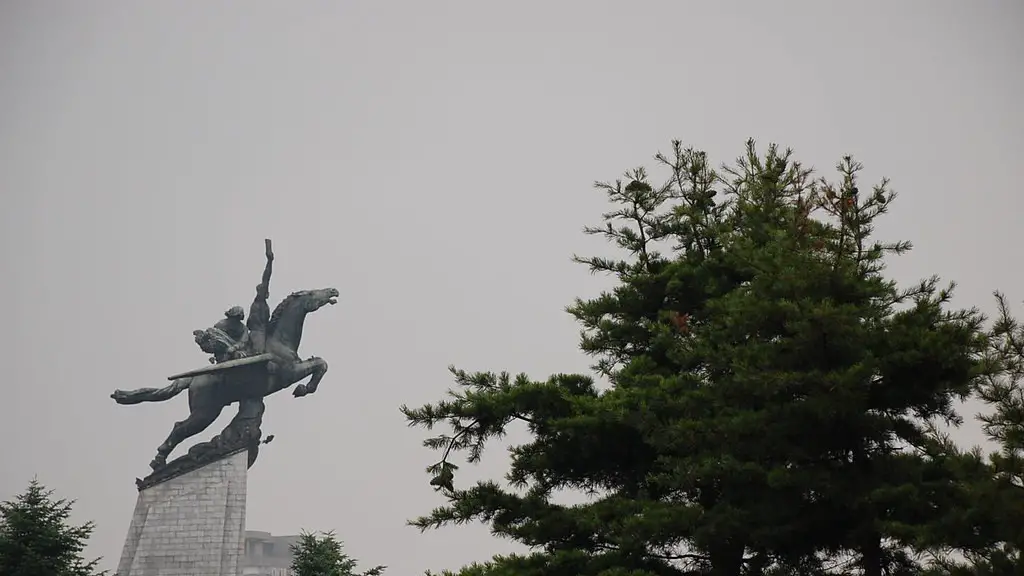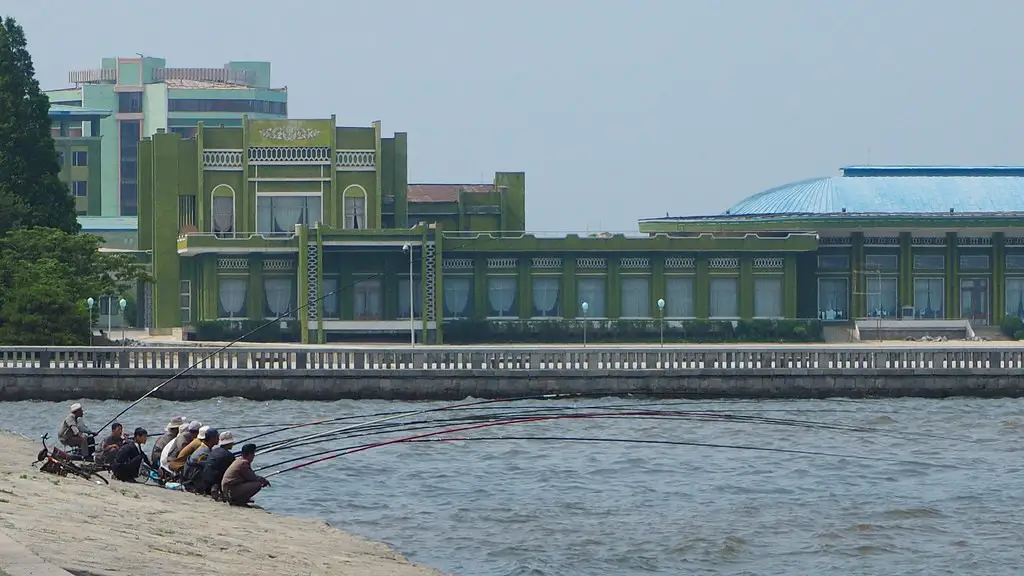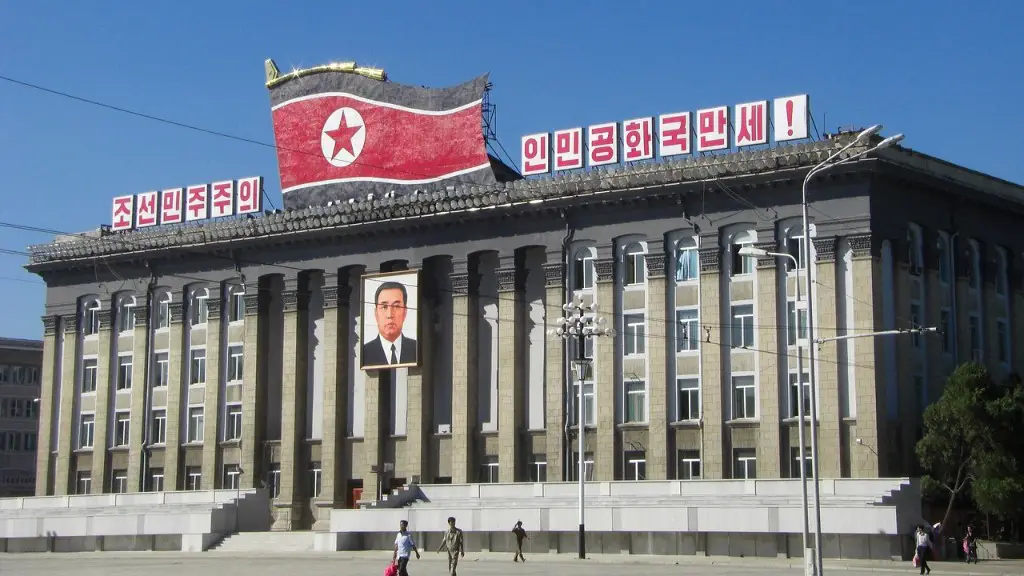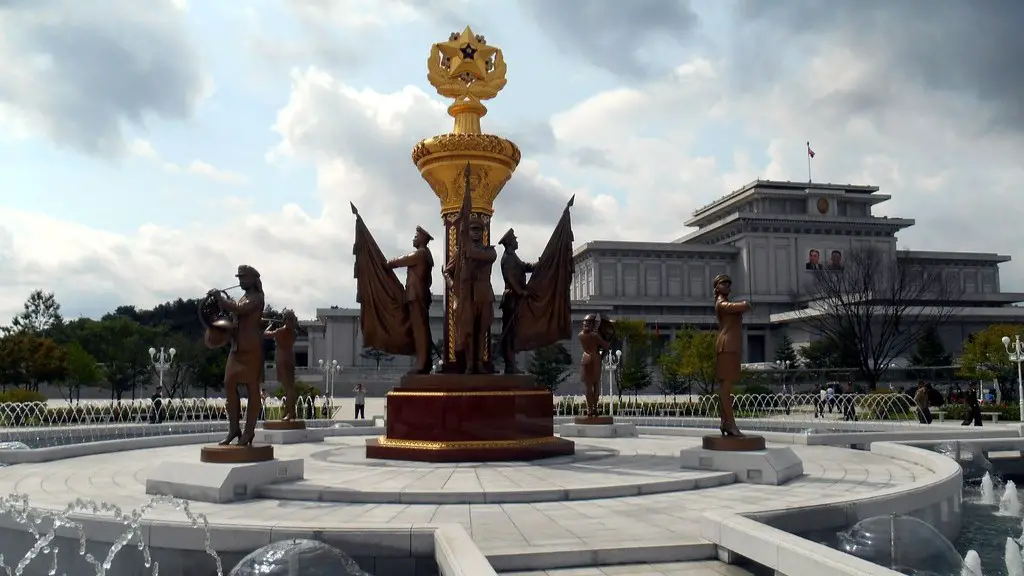The world has recently seen a number of dictatorships come to power, and one of the most notable has been the nation of North Korea. This isolated country has been ruled by a family dynasty for decades, and it has become a source of tension for much of the international community. So, how long has North Korea been in a dictatorship?
The Democratic People’s Republic of Korea (North Korea) was first established in 1948, when it declared its independence from the Korean Empire. It was originally a communist system of government, with a single-party system. However, over time it developed into a totalitarian state, and its leader Kim Il-sung (who was in power between 1948-1994), is often referred to as the nation’s ‘eternal president’.
North Korea is currently ruled by the third generation of the Kim family dynasty, with leader Kim Jong-un (who is in power since 2011) succeeding his father and grandfather. Under the rule of the Kims, North Korea has established control over its population through oppressive tactics, such as restricting freedom of the press and the internet, censoring arts and literature, and establishing a cult of personality around the ruling family. The government also maintains a censorship system for news broadcasts within the country, and imprison those who disagree with their policies.
North Korea has been subject to harsh international sanctions, due to its continued development of nuclear weapons and its human rights abuses. In addition, the nation is known for its totalitarian form of government, in which the ruling party holds absolute control over the actions of its citizens.
Critics of the North Korean regime have described it as a ‘humanitarian disaster’. According to reports by the United Nations, millions of North Koreans suffer from poverty, hunger, and lack of access to basic health care. In addition, refugees living outside the country have reported extreme cases of human rights violations such as torture and starvation, as well as the suppression of freedom of speech and assembly.
Despite the extreme conditions in North Korea, many of its citizens remain devoted to their leader. This can be attributed to the country’s long history of propaganda, which glorifies the ruling family and encourages citizens to obey their orders. This form of psychological manipulation has been used to maintain control over the population, and has been largely successful since the Kim family dynasty first came to power.
Though North Korea is considered to be an oppressive dictatorship, its citizens remain passionate in their loyalty to their leader. The nation’s oppressive tactics and its cult of personality have kept the population in line for decades, though there are limited signs of external pressure having an effect on the state of affairs in the nation. All in all, North Korea has been in a dictatorship for over 70 years.
Economic Issues
The economy of North Korea is one of the least developed in the world. Since 2012, the country has been working on a five-year economic plan to revive the long-stagnant economy, but progress has been limited. North Korea has been subject to economic sanctions from the international community, which has severely hindered their economic growth. In addition, the nation has very little access to foreign currencies, which makes it difficult for them to facilitate international trade.
North Korea’s leadership has attempted to implement reform in order to ease the economic crisis, but has largely failed to gain any traction. This is due to the government’s reluctance to embrace private enterprise, which has hampered growth. In addition, North Korea’s nuclear weapons program has led to further sanctions, resulting in additional economic hardship.
Despite the nation’s economic struggles, North Korea has managed to secure a number of foreign investments in recent years, primarily from China and Russia. These investments have allowed the North Korean government to fund its nuclear weapons program, providing them with greater military capabilities and a stronger grip on power domestically.
The economic crisis in North Korea has had a severe impact on its population. According to reports from charities such as UNICEF, millions of North Koreans are living in extreme poverty and face food insecurity, with a significant portion of the population undernourished. In addition, citizens have very limited access to basic amenities such as healthcare and education.
Military Threat
North Korea is a nation that has been subject to a number of military threats from the international community. The nation’s nuclear weapons program has raised fears of nuclear proliferation, prompting the United Nations to issue crippling economic sanctions. North Korea also continues to threaten its neighbor South Korea, engaging in acts of aggression such as firing artillery towards the South.
The North Korean government is infamous for its bellicose rhetoric, with leader Kim Jong-un frequently issuing threats of “fire and fury” to the outside world. In response, the United States has maintained a military presence in South Korea, and has implemented a policy of “maximum pressure” against North Korea. This has resulted in increased tensions between the two nations, with the potential for military conflict always looming in the background.
Despite the escalating tensions, many see the current situation between North Korea and its neighbors as a Cold War, with both sides unwilling to initiate hostilities due to the fear of nuclear confrontation. As such, diplomatic negotiations have become increasingly important as a way to avoid a possible nuclear conflict.
In recent years, North Korea has seen an easing of tensions with its southern neighbor. This has been due to a series of diplomatic meetings, known as the “talks for peace”, which have seen representatives from both sides discuss possible solutions to the tensions between the two nations. This has been seen as a positive step in the right direction, though there is still a long way to go before the two sides can be considered allies.
U.S. Involvement
The United States has played an important role in the North Korean crisis, providing economic aid and exerting diplomatic pressure on the North Korean government. President Trump and his administration have suggested economic sanctions and diplomatic negotiations as ways to force North Korea to abandon its nuclear weapons program, though questions have been raised about whether these policies are effective.
In addition to diplomatic outreach, the United States has sent mixed messages in regards to their stance on the North Korean crisis. President Trump has repeatedly issued threats of military action against North Korea, while at the same time pushing for diplomatic solutions. This has led to confusion over the US’s stance on the issue, and has not been seen as a constructive way to bridge the gap between the two nations.
The US has also provided economic aid to North Korean citizens, in order to ease their suffering. This aid has been largely rejected by the North Korean government, as they claim it is used to further US influence within the country. Despite this, the aid has been widely accepted by the civilian population, with many seeing it as a sign of hope for the future.
Internation Response
The international community has responded to the North Korean crisis in various ways. The United Nations has passed multiple resolutions condemning North Korea’s human rights violations, and has imposed economic sanctions as a way to force the government to abandon its nuclear weapons program. In addition, the US has deployed troops to the Korean peninsula, in order provide protection for its ally South Korea.
In addition, the United Nations has taken steps to provide humanitarian aid to North Korea, such as sending food aid to those in need. Some countries have also offered diplomatic help, hoping to ease the tensions between North Korea and its neighbors. Most recently, China and Russia have provided diplomatic support for negotiations between North Korea and the US, hoping to bring a peaceful resolution to the crisis.
Despite these efforts, North Korea continues to remain isolated from the international community. Its actions have prompted an unfavorable response from most members of the international community, and ordinary citizens of North Korea remain in dire need of assistance. The world may be reaching a tipping point in the crisis, and it remains to be seen whether diplomacy or force will finally bring peace to the region.
Role of Media
The role of the media in the North Korean crisis has been an important one. The harsh reality of living under a dictatorship has been highlighted through various news outlets, shining a light on the dire situation of the nation’s citizens. This has helped to educate the world on the human rights abuses and economic injustice taking place within North Korea.
In addition, the media has provided an outlet for North Korean citizens to tell their stories. Through interviews and reports, citizens of North Korea have been able to share their experiences of oppression under the rule of the Kim family. This has proved to be an invaluable resource in understanding the plight of the North Korean people, and what steps can be taken to bring about peace in the region.
The media has also served as a platform for international criticism of North Korea. Through news reports and editorials, the world has been made aware of the North Korean government’s actions, and this has been essential in opening up a dialogue between the two sides. It has also been influential in calling for greater sanctions, in an effort to pressure the Kim family into enforcing reforms.
Though the media has had a significant role in the North Korean crisis, it is important to recognize that the solution to the situation will ultimately require international cooperation. The media must continue to educate and inform the public on the human rights abuses occurring in the nation, and increases pressure on the international community to take action.





